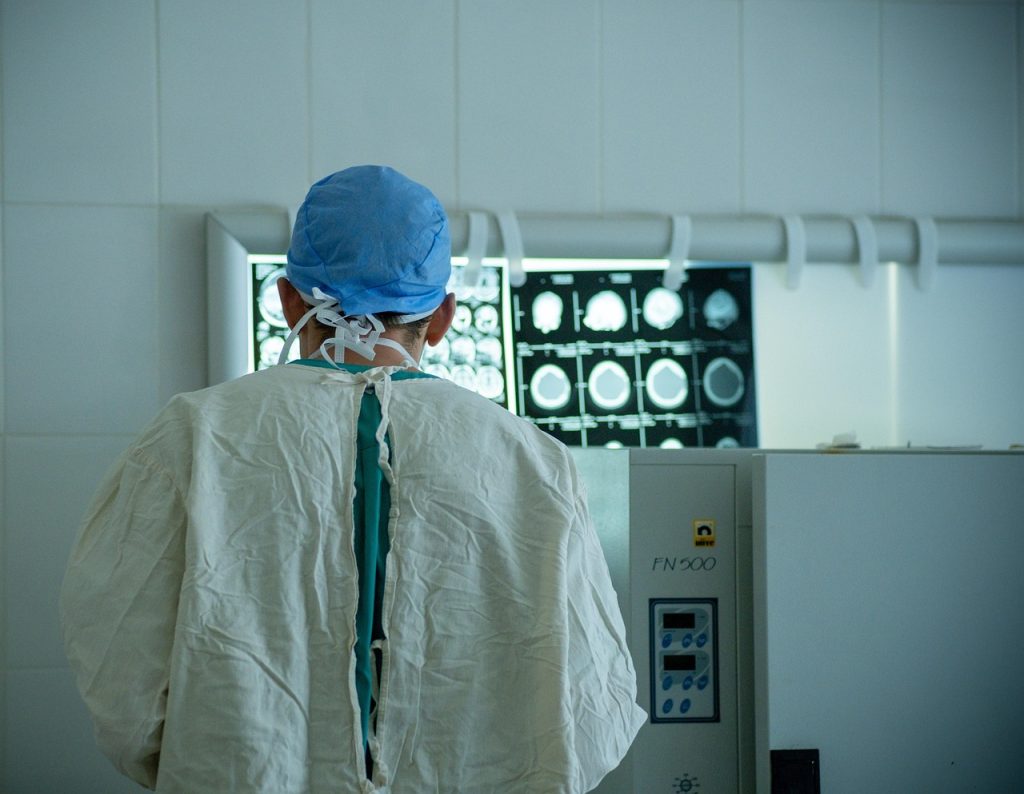
Dr. Andrew Rudin, MD, on Why Smarter, Simpler Medicine Is the Best Medicine
In today’s healthcare landscape, more often feels like better. More scans. More bloodwork. More second opinions. When you walk into a doctor’s office with a question, it’s easy to assume that answers come from machines, monitors, and test results.
But what if we’ve taken it too far?
What if all that testing—often done just to be “thorough”—is doing more harm than good?
That’s the argument increasingly being made by clinicians, researchers, and public health experts. And it’s a perspective that Andrew Rudin, MD, practicing out of Tennessee, has quietly advocated for years.
When Testing Becomes a Trap
Here’s a scenario that might sound familiar: You go in with a vague symptom—some fatigue, a twinge of chest discomfort, or maybe just a gut feeling that something’s “off.” Your doctor orders a panel of labs and a scan “just in case.” The scan reveals a small spot. It’s probably nothing, but they want to check it again in six months. Maybe a biopsy. Maybe a referral.
And now you’re on a treadmill of testing that might never stop—even though you were never really sick to begin with.
This is what’s known in medicine as a diagnostic cascade, and it’s one of the biggest hidden dangers in modern healthcare. New research suggests that over 30% of imaging and lab tests in the U.S. may be unnecessary, and often lead to more testing, not more answers.
“The more you test, the more you find. And not everything you find is a problem,” explains Andrew Rudin, MD. “But once you’ve found it, you can’t un-find it. You have to act, or at least monitor. And that changes the entire experience of being a patient.”
The Real Risks of Overdiagnosis
Most people don’t think of medical tests as dangerous. But they can be—especially when they lead to interventions that were never needed. Here’s how:
- Radiation exposure from repeated CT scans adds up and can increase cancer risk over time.
- False positives cause unnecessary worry and often prompt biopsies or procedures.
- Incidental findings—those harmless “spots” or anomalies—can turn into long-term medical projects.
- Emotional toll: The anxiety of waiting for results, repeat testing, or vague diagnoses can deeply affect mental health.
- Financial strain: Even with insurance, the costs of testing and follow-up can add up quickly.
“It’s not just the physical impact,” says Dr. Rudin. “It’s the psychological shift. You go from feeling healthy to being a ‘case.’ You start defining yourself by what might be wrong, instead of what’s actually working.”
Why It Keeps Happening
Despite these risks, overtesting continues—often driven by good intentions. Doctors want to be careful. Patients want peace of mind. And sometimes, technology makes it too easy to test first and think later.
Other pressures play a role too:
- Fear of lawsuits leads some physicians to practice “defensive medicine.”
- Time constraints make it easier to order a test than to explain why it might not be needed.
- Cultural expectations mean patients often equate more testing with better care.
Dr. Rudin acknowledges all of these forces, but still believes doctors can choose a better way. “It takes courage to explain why you’re not ordering a test. It’s harder than just saying yes. But it’s also the right thing to do when that test won’t help.”
Choosing Smarter Medicine
In his Tennessee-based practice, Andrew Rudin, MD, uses what he calls a “test with purpose” philosophy. Every diagnostic decision must answer two questions:
- Will this test change what we do next?
- Is the risk of not testing greater than the risk of testing?
If the answer to both is yes, he proceeds. If not, he sits down with the patient and talks it through.
This approach isn’t about doing less for the sake of doing less—it’s about doing only what’s necessary. And patients are responding positively.
“When we take the time to explain the why behind our choices, patients feel informed and respected,” Rudin says. “They don’t want to be over-tested. They want to be well cared for.”
What You Can Do as a Patient
If you’re ever in a situation where your doctor recommends testing—or you’re thinking about asking for one—consider these five questions:
- What is this test looking for?
- What are the risks of the test itself?
- What happens if the result is normal? Abnormal? Inconclusive?
- How likely is it that I actually have the condition we’re testing for?
- Will the result change what we do?
These aren’t confrontational questions—they’re empowering ones. And good doctors, like Andrew Rudin, MD, welcome them.
“Medicine should be a collaboration,” he says. “You’re not just a passive recipient of care. You’re a participant. And participants ask good questions.”
The Bottom Line
There’s a growing shift in healthcare, led by thoughtful physicians like Dr. Rudin, who are working to bring medicine back to its roots: trust, conversation, and careful judgment.
In a world of overtesting, it turns out that the most radical thing a doctor can do is pause.
Not rush. Not assume. Not default to diagnostics.
But think. And talk. And choose what truly serves the patient.
Because sometimes, the best way to care for someone… is to do a little bit less.